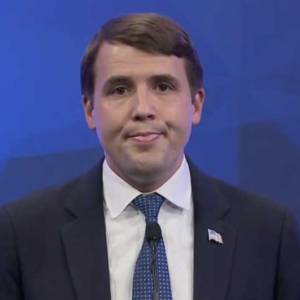Granite State Democrats already facing a harsh political environment in the upcoming midterm elections got more bad news Thursday when the Labor Department announced the inflation rate hit yet another 40-year high.
The consumer-price index in January rose 7.5 percent year over year, its highest annual rate since February 1982. That put the inflation rate above December’s 7 percent rate and well above the 1.8 percent pace before the pandemic.
A new CNN poll released the same day found inflation is the top concern of American voters, confirming the findings of virtually every recent major national poll.
Another finding confirmed by the left-of-center news outlet: President Biden’s support is in freefall as a result. “Just 41 percent approved of the way he’s handling his job while 58% disapproved,” CNN reported, adding that 56 percent of Americans couldn’t name a single thing Biden has done right.
For Democrats like Senator Maggie Hassan and Rep. Chris Pappas, these numbers are a disaster. And so the question is, what are they doing about the inflation problem that’s hitting New Hampshire families right in the wallet?
They’re sticking with Biden.
When the president came to Woodstock, N.H. in November to tout his administration’s trillion-dollar spending initiatives, he said his $1.9 trillion “Build Back Better” proposal “will bring down costs…it’s gonna reduce inflation.”
Both Rep. Pappas and Sen. Hassan have made the same claim — massive federal spending will lower inflation. On WMUR, for example, Hassan said her approach to addressing inflation was to spend billions more in subsidies for healthcare, home heating oil and other government programs to soften the impact of high prices.
Pappas has also echoed that approach, touting his recent vote for the $350 billion “America COMPETES Act” as part of his strategy “to attack inflation,” he told left-leaning radio talk host Chris Ryan. He also says his vote for the “Build Back Better” spending will lower costs, not increase inflation.
But a recent poll of swing-state voters, including in New Hampshire, found 57 percent of respondents believe the massive spending proposal will make inflation worse.
And a new survey of 500 small business owners by the Job Creators Network Foundation released
Thursday found two-thirds of them agree.
Economists are dubious about the “more spending, less inflation” approach.
“Biden’s Build Back Program could add to aggregate demand to the extent that the spending in that program is not matched by taxes,” said Desmond Lachman, a former Deputy Director at the International Monetary Fund, now a Fellow at the American Enterprise Institute. “I am dubious that it will do much to increase aggregate supply at least in the next year or two. I do not see inflation coming down anytime soon.”
Economist Robert Graboyes of the Mercatus Center at George Mason University isn’t convinced, either.
“I can imagine an economics professor asking the following question on an exam: ‘Can you specify conditions under which $1.9 trillion in Build Back Better expenditures would reduce inflation?” And I could certainly name such conditions, though I would feel compelled to add they would not likely exist in the real world,” he told NHJournal via email.
“Almost certainly, on Planet Earth, a new spending program of that magnitude would end with higher inflation, not lower. And a key to that caveat lies in my perception of how the Federal Reserve would respond to such a massive shock to fiscal policy. (I worked for the Fed for 12 years.)”
Senator Hassan and Rep. Pappas declined to comment on the new inflation numbers or any, more substantive, plans they have to address the problem. In fact, a search of Hassan’s official website finds just one reference to the current inflation crisis.
On Wednesday, Hassan announced she was calling for a federal gas tax “holiday” through the end of the year, paid for with more federal borrowing. Dropping the 18.4 cents per gallon tax would, in theory, reduce the cost of gasoline to where it was in July.





